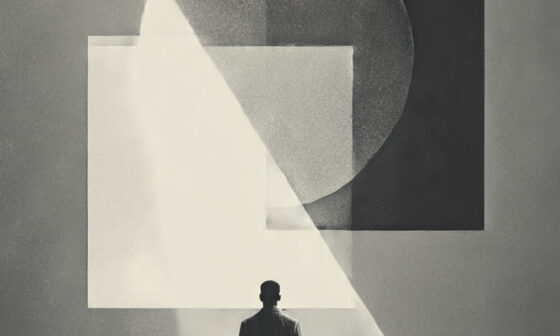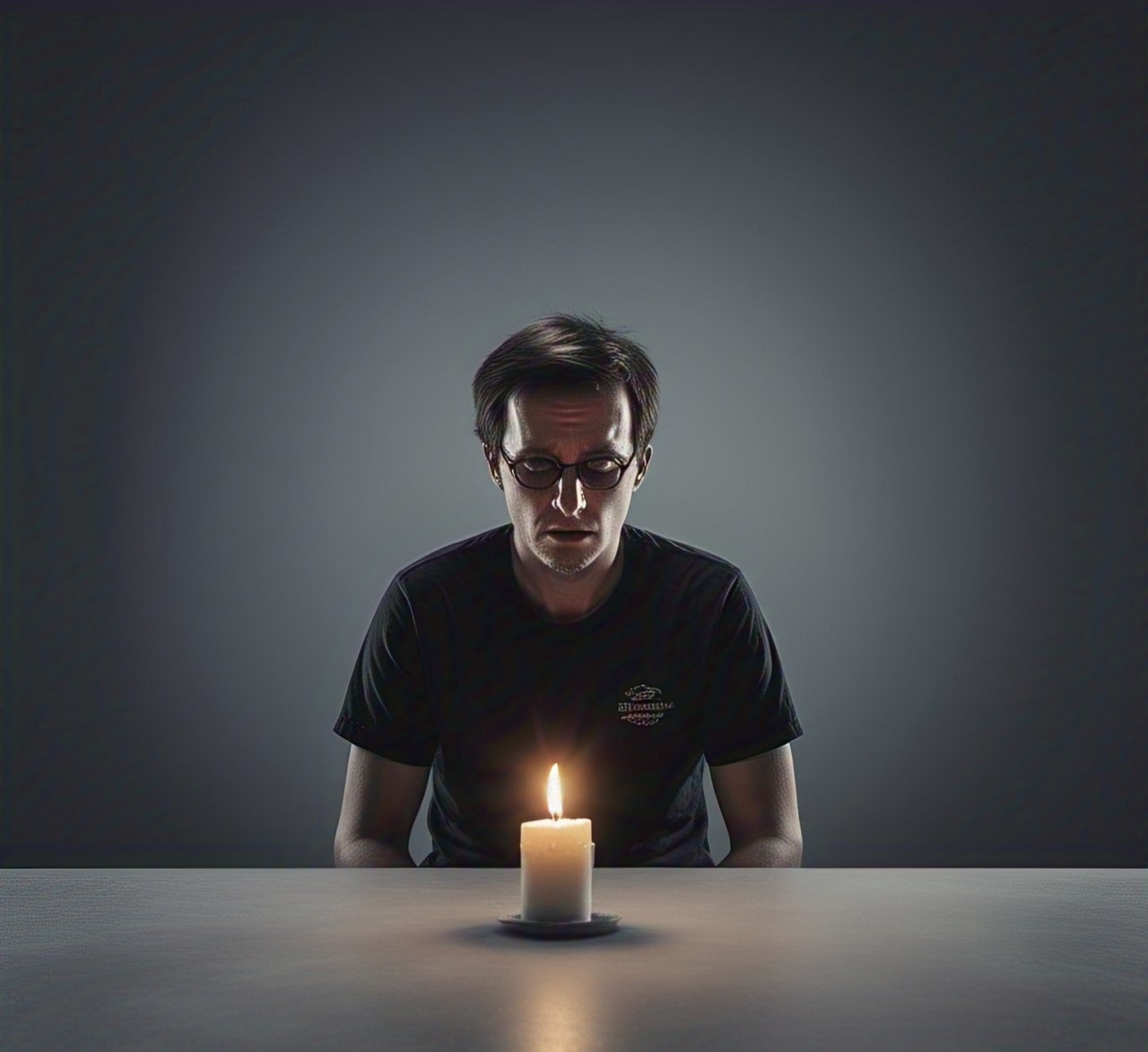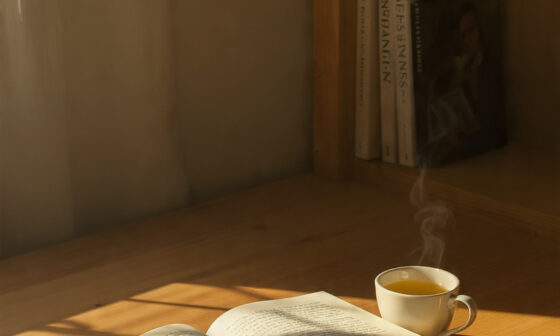Ego is a quiet destroyer; it most times does not storm into our lives in such a way that is obvious; it slips in unnoticed, disguising itself as confidence, independence, and self-assurance, but if it is left unchecked, it separates us from reality, from others, and even from ourselves.
The Stoics warned against this trap long before modern psychology gave it a name; they understood that ego blinds us to truth, deafens us to feedback, and builds walls where bridges should be. It convinces us we already know enough, that we are always right, and that humility is weakness, but history, philosophy, and experience all point to the same truth: Ego is the real enemy of growth, connection, and wisdom. And until we confront it, we will never see the world or ourselves clearly.
The Separation That Blinds Us
One of the early members of Alcoholics Anonymous defined ego as “a conscious separation from.” From what? From everything and everyone including our own nature.
When ego takes the wheel, it distances us from reality; it makes us arrogant, selfish, and shortsighted. We become mean in spirit, superficial in thought, and insecure. In short, we become everything a Stoic strives not to be.

The Stoic philosopher Epictetus warned, “It is impossible to learn that which we think we already know.” Ego convinces us we have nothing to learn, no room to grow, no reason to listen, and it builds walls between us and other people, between us and the truth. When we can not receive feedback, can not admit mistakes, and can not face reality, we trade growth for delusion.
We can not improve the world if we do not understand it; we can not lead others if we have lost touch with their needs or our own. Ego does not just blind us to our flaws; it blinds us to opportunities, relationships, corrections and the very simple wisdom of living well.
Since we can be so enmeshed with pride, corrections can be difficult to give freely and receive gracefully. It is possible to say that we are grateful for constructive criticism and feedback, or perhaps say we’re open enough to recognize our shortcomings and adjust whenever necessary.
However, even if we learn to accept criticism and corrections that help us improve, hearing these things isn’t always simple, though it could become more of a breeze and get easier. We sometimes tend to be defensive and experience a certain amount of resentment whenever someone gives us criticism or challenges us. This is particularly the case if we’ve never requested feedback but they provide it. This kind of criticism could also push us into despair or cause us to feel as if we should give up.
Continue Reading: How Well Do You Handle Correction?
The Ancient Warnings Against Ego (Hubris)
The Greeks called it hubris, an excessive pride or self-confidence that inevitably leads to downfall. They knew it was the ultimate enemy of clarity and progress, and for them, hubris, that is ego was not just a personal failing; it was a spiritual sickness that poisoned judgment and invited ruin, again and again, very very much loudly the Stoics echoed this warning.
Marcus Aurelius, who was an emperor, wrote often about avoiding the “stain of imperialization,” the arrogance that comes from power. He dismissed the foolishness of seeking to be remembered for a thousand years, or imagining he would live forever, he dismissed all of that.
Even at the height of their success, Stoic philosophers treated ego as something to be actively battled against; they understood that strength without humility becomes tyranny, and confidence without perspective becomes delusion, because and again they clearly stated both in words and in character that humility is the path to true strength.
Humility as the Path to Strength
Without humility, what we call “confidence” is often just bravado, and what we see as “self-assurance” is often ignorance of our limitations. Ego isolates us, leaving us in a fantasy world where only our opinions matter and only our abilities count.
But humility, on the other hand, invites connection; it keeps us teachable; it allows us to take feedback without feeling attacked; it allows us to recognize our mistakes without collapsing into shame, and also, it allows us to see others not as threats but as partners and that is true strength.
And this true strength is not about dominating others or proving our superiority, but it is very very much about being grounded enough to learn, adapt, and grow; the Greeks knew it. The Stoics practiced it, and it is why we read, reflect, and remind ourselves daily that: Ego is the enemy, but humility is our friend.
Pride goes before a fall: This proverb, some say, is coined from the well-known story titled “The Hare and Tortoise” from Aesop’s fables. We all remember having read it during our kindergarten days.
The hare, always quick on his feet, challenged a tortoise to a race; the tortoise knew that being a slow animal, he was no match for the hare, yet he accepted the challenge. On the day of the race, all the animals assembled in one place, and the race commenced. Like lightning, the hare sprinted across and disappeared from sight, but the poor tortoise walked slowly, as usual.
The haughty hare, which had gone too far away, paused under a tree; he knew that it would take a long time for the tortoise to reach him, so he stretched and slept. How long he slept, he never knew; meanwhile, the tortoise came there, saw the hare sleeping, and went ahead quietly and reached the winning post, giving a crushing defeat to the hare.
This was a lesson not only to the hare but to everyone who feels too proud and underestimates the others.
Continue Reading: Pride Goes Before A Fall: The Danger Of Overconfidence
Read Also: It Takes What It Takes: The Stoic Truth Behind Greatness
Read Also: The Pressure Reveals The Person: Proverbs 24:10
Read Also: The Stoic Way of Life: The Tranquility Of Mind And Certainty of Moral Worth
Conclusion
Ego is seductive; it tells us we are always right, always special, always above correction, but that comfort is a trap, and the moment we believe it, we stop growing.
To live wisely and to live well we must be willing to see ourselves clearly, listen humbly, and connect deeply. The work of conquering ego never ends, but every day we practice humility is another day we step closer to real strength.





